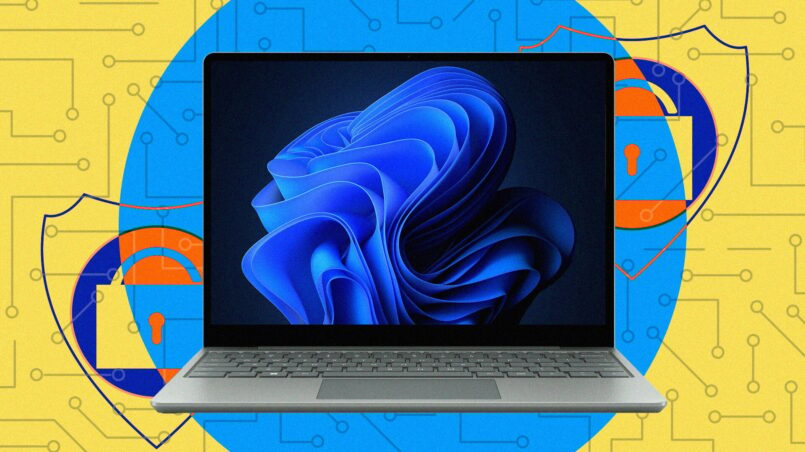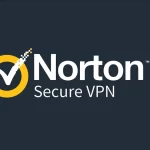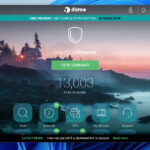Share this
In today’s digital landscape, small businesses are increasingly becoming targets of cyberattacks. The necessity for robust virus protection is critical to safeguarding sensitive information, maintaining operational integrity, and ensuring business continuity. This guide provides an in-depth look into virus protection for small businesses, exploring key features, top solutions, best practices, and how to choose the right antivirus software.
Why Virus Protection is Essential for Small Businesses
1. Increased Cyber Threats
Small businesses often lack the sophisticated security measures that larger enterprises have, making them attractive targets for cybercriminals. These attacks can result in data breaches, financial loss, and reputational damage.
2. Protection of Sensitive Data
Virus protection helps secure sensitive data, such as customer information, financial records, and intellectual property, from being compromised by malware, ransomware, and other malicious attacks.
3. Regulatory Compliance
Many industries require businesses to adhere to specific data protection regulations. Effective virus protection ensures compliance with standards like GDPR, HIPAA, and others.
4. Business Continuity
A virus attack can disrupt business operations, leading to downtime and lost revenue. Robust antivirus solutions help prevent such disruptions, ensuring smooth and continuous business operations.
Key Features of Virus Protection for Small Business
1. Real-Time Threat Detection
Effective virus protection software should offer real-time scanning and monitoring to detect and neutralize threats as they emerge.
2. Automated Updates
Automatic updates ensure that the antivirus software is always up-to-date with the latest virus definitions and protection measures.
3. Comprehensive Scanning
Full system scans and scheduled scans provide thorough protection by identifying and eliminating malware from all parts of the system.
4. Firewall Integration
A built-in firewall enhances security by monitoring incoming and outgoing traffic and blocking unauthorized access to the network.
5. Email Protection
Email filtering capabilities help protect against phishing attacks, spam, and malicious attachments.
6. Web Protection
Web protection features block access to malicious websites and prevent drive-by downloads of harmful software.
7. Ransomware Protection
Ransomware protection safeguards against attacks that encrypt business data and demand ransom for its release.
8. Endpoint Security
Comprehensive virus protection should cover all endpoints, including desktops, laptops, mobile devices, and servers.
9. Data Encryption
Encrypting sensitive data adds an extra layer of security, making it inaccessible to unauthorized users even if they breach the system.
10. User-Friendly Interface
A user-friendly interface simplifies the management and monitoring of antivirus protection, even for users with limited technical expertise.
Top Virus Protection Solutions for Small Business
1. Norton Small Business
Overview:
Norton Small Business offers comprehensive virus protection tailored for small businesses. It provides multi-layered security and is designed to protect against various cyber threats.
Key Features:
- Real-Time Threat Detection: Detects and removes malware, spyware, and ransomware.
- Device Management: Centralized management for all connected devices.
- Cloud Backup: Secure cloud storage for important files.
Benefits:
- Ease of Use: Simple setup and management.
- Scalability: Protects multiple devices with a single subscription.
- 24/7 Support: Access to customer support round the clock.
Pricing:
Starts at $99.99 per year for up to 5 devices.
2. Bitdefender GravityZone Business Security
Overview:
Bitdefender GravityZone Business Security provides robust protection with advanced threat detection and machine learning capabilities.
Key Features:
- Next-Gen Security: Uses machine learning to detect emerging threats.
- Endpoint Protection: Comprehensive protection for desktops, servers, and mobile devices.
- Centralized Management: Web-based console for easy management.
Benefits:
- Advanced Threat Detection: Identifies and neutralizes sophisticated malware.
- Low Impact: Optimized for minimal impact on system performance.
- Flexible Deployment: Suitable for different business environments.
Pricing:
Custom pricing based on the number of devices and features required.
3. McAfee Endpoint Security
Overview:
McAfee Endpoint Security offers a comprehensive suite of tools designed to protect small business environments from cyber threats.
Key Features:
- Unified Threat Management: Combines multiple security technologies in one solution.
- Behavioral Analysis: Detects suspicious activities through behavioral patterns.
- Firewall Protection: Integrated firewall to block unauthorized access.
Benefits:
- Proactive Security: Prevents malware infections before they occur.
- Centralized Management: Simplifies security management across all endpoints.
- Threat Intelligence: Leverages global threat intelligence for enhanced protection.
Pricing:
Starts at $35.99 per year per device.
4. Kaspersky Small Office Security
Overview:
Kaspersky Small Office Security is designed specifically for small businesses, offering a balance of ease of use and robust protection.
Key Features:
- Advanced Malware Protection: Real-time scanning and threat removal.
- Data Backup: Secure backup options to protect critical business data.
- Password Management: Secure storage for business passwords.
Benefits:
- Easy Deployment: Quick setup with minimal configuration required.
- Comprehensive Protection: Covers all aspects of small business security.
- Affordable: Competitive pricing for small business budgets.
Pricing:
Starts at $150 per year for up to 5 devices.
5. Trend Micro Worry-Free Business Security
Overview:
Trend Micro Worry-Free Business Security provides multi-layered protection for small businesses, with a focus on ease of use and effective threat detection.
Key Features:
- Antivirus and Anti-Malware: Protection against a wide range of threats.
- Web Security: Blocks access to malicious websites.
- Email Security: Filters phishing emails and malicious attachments.
Benefits:
- Cloud-Based Management: Manage security from a web-based console.
- Customizable Policies: Set security policies tailored to business needs.
- 24/7 Support: Continuous support to resolve security issues.
Pricing:
Starts at $75 per year for up to 5 devices.
Best Practices for Virus Protection in Small Businesses
1. Regular Software Updates
Ensure that all software, including antivirus programs, operating systems, and applications, are regularly updated. Updates often contain security patches that protect against known vulnerabilities.
2. Educate Employees
Conduct regular training sessions to educate employees about the latest cyber threats, safe browsing practices, and the importance of not opening suspicious emails or attachments.
3. Implement Strong Password Policies
Enforce strong password policies and encourage the use of password managers to store and manage complex passwords. Regularly update passwords and use multi-factor authentication where possible.
4. Backup Data Regularly
Perform regular backups of critical business data and store them securely. Backups ensure that data can be restored in the event of a ransomware attack or data loss incident.
5. Use Firewalls
Deploy firewalls to monitor and control incoming and outgoing network traffic. Firewalls act as a barrier between trusted and untrusted networks, helping to block unauthorized access.
6. Restrict Access
Limit access to sensitive data and systems to only those employees who need it for their work. Use role-based access control to define user permissions.
7. Conduct Regular Security Audits
Perform regular security audits to identify and address vulnerabilities in your systems. Audits help in assessing the effectiveness of current security measures and making necessary improvements.
8. Monitor Network Activity
Use network monitoring tools to detect unusual or suspicious activity. Monitoring helps in identifying potential threats early and responding promptly.
9. Establish an Incident Response Plan
Create and maintain an incident response plan to handle security breaches. The plan should outline steps to take in the event of an attack, including communication protocols and recovery procedures.
10. Encrypt Sensitive Data
Use encryption to protect sensitive data, both in transit and at rest. Encryption ensures that even if data is intercepted, it cannot be accessed without the encryption key.
How to Choose the Right Virus Protection for Your Small Business
1. Assess Your Business Needs
Evaluate your business’s specific security needs, considering factors such as the number of devices, types of data handled, and potential threats. Choose antivirus software that addresses these requirements.
2. Consider Scalability
Select a solution that can grow with your business. Ensure that the antivirus software can accommodate an increasing number of devices and offer additional features as needed.
3. Evaluate Ease of Use
Opt for antivirus software with a user-friendly interface and straightforward management capabilities. This is especially important if you have limited IT resources.
4. Check Integration Capabilities
Ensure that the antivirus solution integrates seamlessly with your existing systems and tools. Integration facilitates easier management and enhances overall security.
5. Look for Customer Support
Choose a provider that offers reliable customer support, including 24/7 assistance, to address any issues that may arise promptly.
6. Review Pricing
Compare the pricing of different antivirus solutions to find one that fits your budget while still offering comprehensive protection. Consider both upfront costs and ongoing subscription fees.
7. Read Reviews and Testimonials
Look at reviews and testimonials from other small business users to gauge the effectiveness and reliability of the antivirus software.
Conclusion
Virus protection is a critical component of cybersecurity for small businesses. With the increasing prevalence of cyber threats, investing in robust antivirus solutions is essential to safeguard your business’s sensitive data, ensure compliance, and maintain operational continuity. By understanding the key features of virus protection, exploring top solutions, and following best practices, small businesses can enhance their security.


